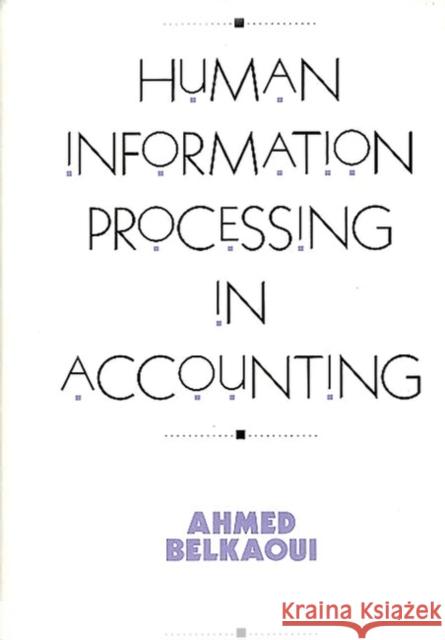Human Information Processing in Accounting » książka
Human Information Processing in Accounting
ISBN-13: 9780899303789 / Angielski / Twarda / 1989 / 310 str.
Ahmed Belkaoui focuses on the contributions human information processing research can make in the study of accounting decision-making. Both a review and synthesis of the current literature and a springboard for further research, Human Information Processing in Accounting explores the basic psychological concepts underlying human decision-making and their applications to accounting. As Belkaoui notes at the outset, accounting information is used primarily for decision-making. Human information processing in accounting is designed to understand, describe, evaluate, and--most importantly--improve the decision process used in an accounting or auditing context. Belkaoui's book provides accounting students and practitioners with the first comprehensive overview of the ways in which human information processing research has been used to study and enhance accounting decision-making.
Divided into six parts, the volume begins by examining the policy-capturing process and the Brunswick Lens model used in this type of research. Subsequent chapters address the models of risky choice used to predict or describe how individuals make these types of choices, the application of probability elicitation and revision to accounting research and practice, the heuristics and biases individuals use to reduce complex cognitive processes to simpler judgmental operations, and the application of cognitive science to accounting. A number of chapters include appendices illustrating the type of accounting studies that exist for each of the human information processing paradigms presented. Taken as a whole, Belkaoui's work represents a pioneering attempt to focus and organize the field of human information processing in accounting.











